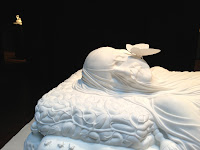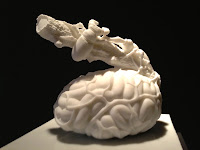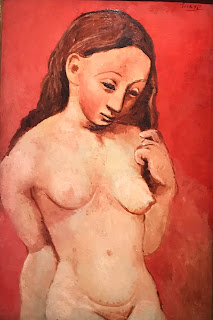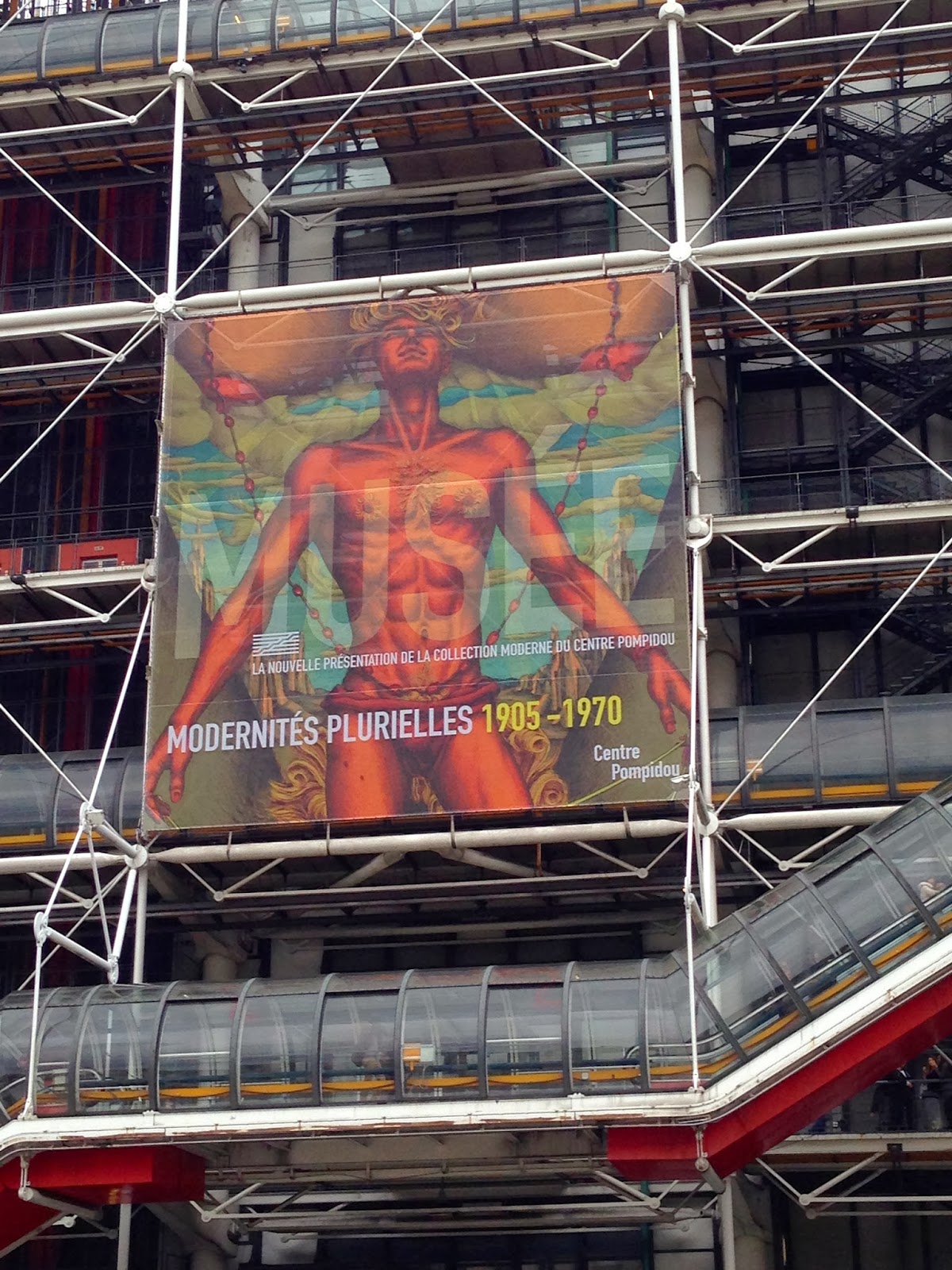HYPNOTIC YES, BUT MORE OF A HATE THAN A LOVE RELATIONSHIP
 Jan Fabre was a discovery
by accident. I knew nothing about him. At the Beaux-Art in Brussels
years ago there was a very large sparkling green statue standing in the
main gallery. Magnetic, hypnotic, enticing you to come closer and then
to my horror, I discovered that the whole statue was made of beetles.
Insects of any kind and I do not have a good relationship. I backed off
at once and yet somehow the statue was compelling.
Jan Fabre was a discovery
by accident. I knew nothing about him. At the Beaux-Art in Brussels
years ago there was a very large sparkling green statue standing in the
main gallery. Magnetic, hypnotic, enticing you to come closer and then
to my horror, I discovered that the whole statue was made of beetles.
Insects of any kind and I do not have a good relationship. I backed off
at once and yet somehow the statue was compelling.  |
| Heaven of Delight |
A few years later - the same effect - this but then I knew who he was and could look at the work at a distance. It is the decoration of the ceiling of the Royal Palace in Brussels Heaven of Delight (made out of one million six hundred thousand jewel-scarab wing cases) is widely praised. .
 |
| Jan Fabre |
Who is Jan Fabre ? He was born in Antwerp in 1958 and has been known for his work as a theatre artist and author since the late 1990s. He seems to have created over thirty pieces combining theatre and dance but I gather his work is very controversial and it could well be a love-hate relationship with his public. His core preoccupation is «life». Metamorphosis. I went very cold on him last year when I heard that on the 26 October, several media reported how during a shoot in the Antwerp town hall for a forthcoming film on Fabre, living cats were thrown repeatedly several meters spinning into the air, after which they made a hard landing on the steps of the entrance hall. Animal welfare executive chairman said he was having a meeting with his party chairman when he heard howling cats.I was outraged as was the press and animal lovers of any kind. That was the end of Fabre for me.
Then Laurent sent me a couple of photos from an exhibition in the Daniel Templon Gallery in Paris. They fascinated me.
 In marble and all or most of them are
depicting the brain inhabited by insects and plants. Here he is actually
displaying death although he is paying homage to two predominant
scientists.
In marble and all or most of them are
depicting the brain inhabited by insects and plants. Here he is actually
displaying death although he is paying homage to two predominant
scientists. 
 |
Perhaps it is not that that counts but rather how humanity is tied to nature. The brain, our intelligence and creativity appears as a protector to these insects. Butterflies, bees, spiders and of course beetles.
 |
 |
Looking at the brain part of the sculpture is not easy until the insect is detected. Then somehow it is ethereal with a dream like quality.
I will not be jumping onto a train to go and see Jan Fabre as the cat incident still sticks in my throat but I admit, there is something in his work which makes you ask questions .




Commentaires